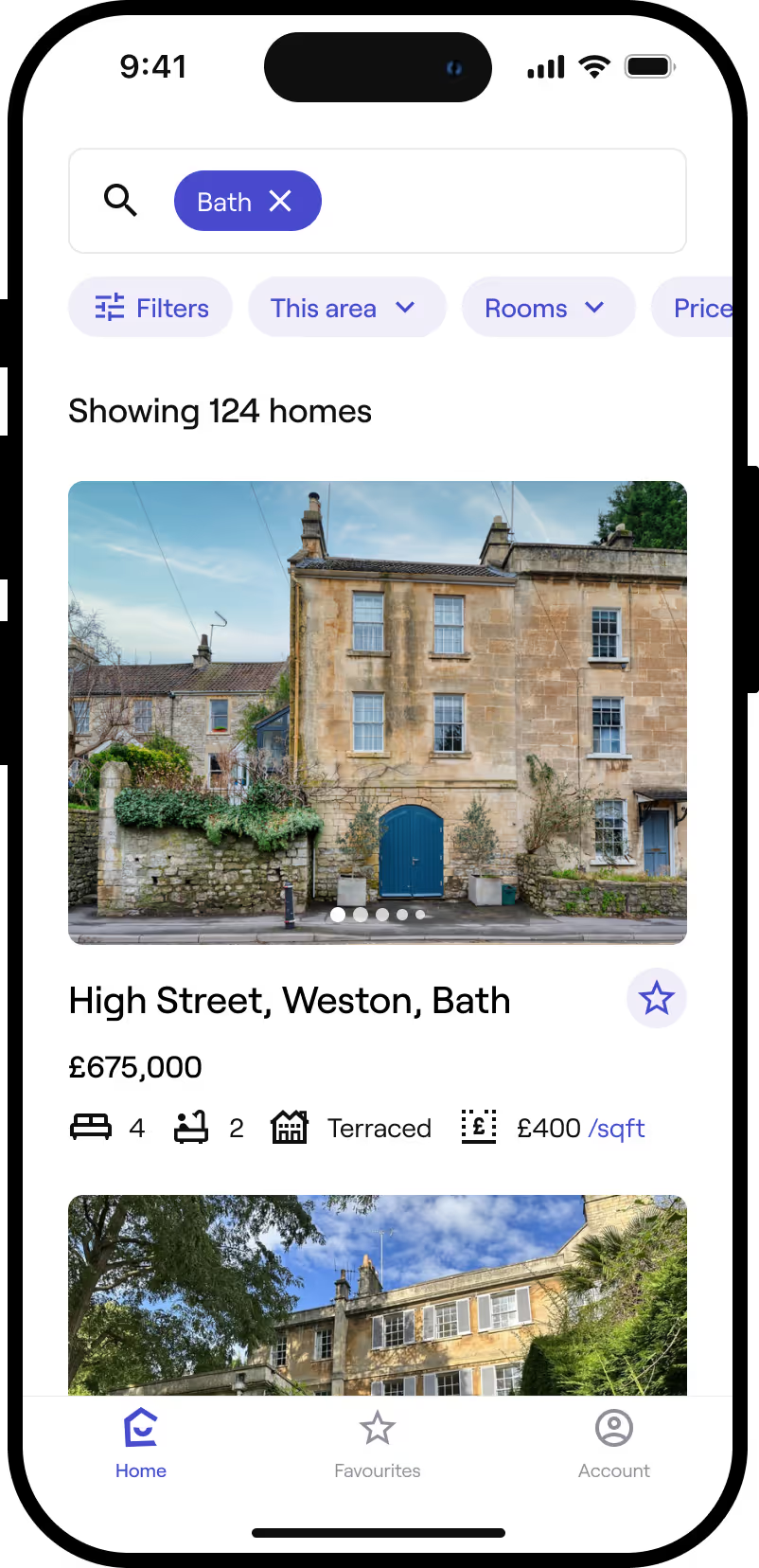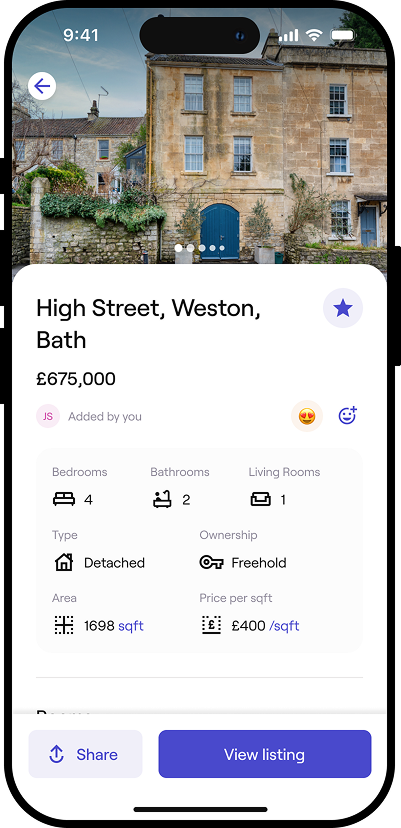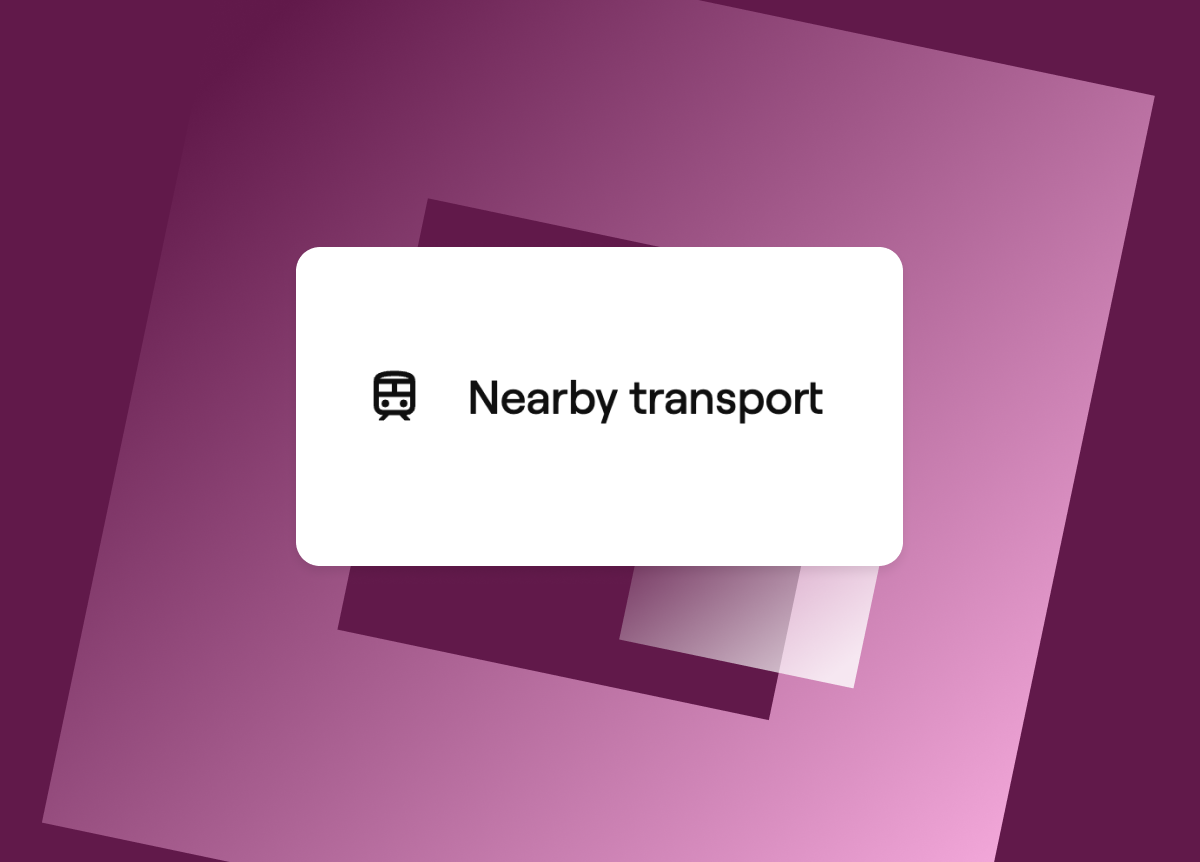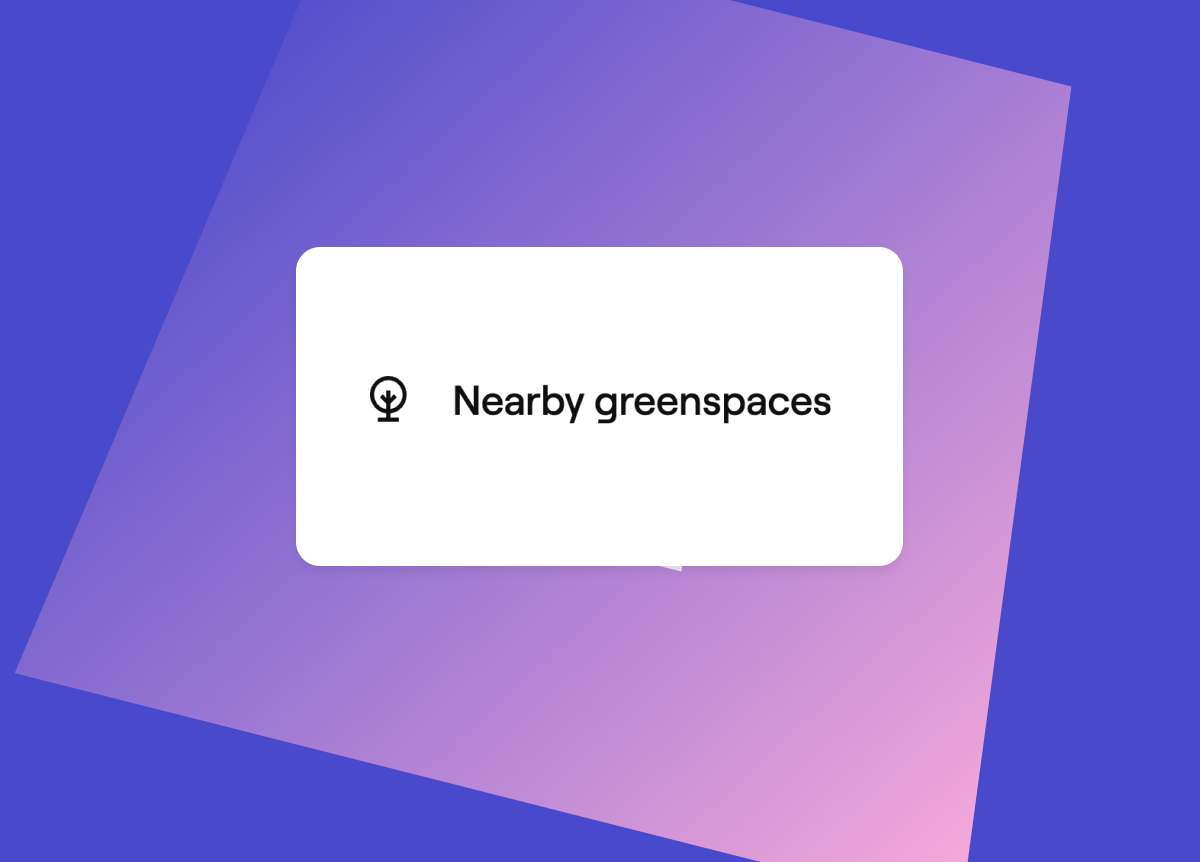Why Rightmove’s Decline Marks a New Era for Estate Agents
ex-Wise and Deliveroo. Can argue was Deliveroo’s first AI product manager, and led a group of logistics teams. Worked at Connect Ventures for the last 18 months.

The UK property market has just had one of its biggest wake-up calls in years.
Rightmove’s market crash last week wasn’t just a blip - it was the latest and loudest signal yet that the old model of property search is faltering. For two decades, the industry has clung to portals that barely evolved, relying on rising agent fees while offering buyers the same clunky filters and thumbnail grids.
But the world around them has changed. And buyers have changed even faster.
At Jitty, we’ve seen this shift firsthand. This month, we’re on track to surpass half a million property searches, with 25% month-on-month growth since launch - all with zero acquisition spend. People aren’t discovering Jitty because we pushed ads in front of them. They’re sharing it because the product finally feels like a smarter and more natural way to find a home.
In fact, 75% of people browsing Jitty prefer using natural language search - asking for “a Victorian terrace near a good bakery” or “a modern house with big windows and good schools nearby” - rather than clicking through outdated filters. It’s a major behavioural shift, and it’s happening fast.
The start of Rightmove’s downfall was always going to be its complacency. While they were defending their revenue model, the search experience stagnated. Meanwhile, AI has begun reshaping global property search at breakneck speed. ChatGPT has partnered with Zillow. Google’s Gemini showcased apartment-hunting as one of its first agent demos. And in the UK, Jitty is leading the charge - offering an image-first, AI-first experience that reacts the way people actually think.
But let me be clear about something I believe to be very important: AI won’t replace estate agents. It will make the great ones even more essential.
Estate Agents aren’t going anywhere
Every time a new technology hits property, someone predicts the death of the estate agent. It happened with online portals. It happened with hybrids. And now it’s happening with AI.
I largely think that this is because people misunderstand what agents actually do - and what sellers really value. Listing a property, uploading photos, scheduling viewings - these are the mechanical parts of the job. They’re important, but they’re not why sellers choose an agent.
Even pricing and negotiation, the classic differentiators, aren’t the full story. Yes, AI tools and valuation models are improving, but they still miss the nuances that matter. A UK survey recently found that 87% of agents believe AVMs routinely undervalue homes, particularly in rural and lower-income markets. That doesn’t surprise me. Data may describe a house, but only a human can understand a buyer’s motivation or a seller’s urgency.
The best agents bring something AI can’t replicate: context, intuition, and emotional intelligence. They understand the story behind a sale as much as the sale itself. Buying a home isn’t just a financial transaction - it’s a deeply human one.
One of our partner agents, Nick Stopard, co-founder of Boardwalk Property Co., expressed it perfectly: “Should the solution be found by AI… the estate agent still has the most vital role in communication. Humans still respond best to human interaction. Good estate agents use empathy to communicate in a sensitive and solution-focused manner with several stakeholders in a chain.”
In a world where nearly 29% of residential sales fall through, that human layer matters. Agents act as shock absorbers - keeping deals together, navigating personalities, resolving tension, and giving sellers peace of mind. AI can assist, but it can’t reassure people.
It’s like flying a plane. AI has been piloting aircraft systems for decades, but when the stakes are high, we still want a human in the cockpit.
What I think AI will change
AI won’t replace agents, but it will absolutely transform their workflow.
At Jitty, we’re building tools that make search faster, automate repetitive tasks, reduce fall-through risks, and give agents a clearer picture of buyer intent - all while keeping the human expert firmly in control.
Meanwhile, we’ve made a deliberate decision that sets us apart from traditional portals: We don't charge agents for listings. That frees us to optimise solely for the buyer’s experience - and it means agents get visibility without paying for the privilege.
Our rapid growth - backed by REA Group, Gradient Ventures (Google’s AI fund), Goodwater Ventures, and True Global - shows how urgently the market wants something better.
And the market has spoken loudly on another point: Rightmove is no longer seen as the future of property search.
The property world is moving on
Rightmove’s model was built for a world that doesn’t exist anymore. The dominance it once enjoyed was always going to crack under the pressure of rising expectations and falling innovation.
Buyers now expect intelligent, conversational tools that understand intent. They expect platforms that feel more like talking to a knowledgeable friend than interrogating a spreadsheet. Rightmove is finally admitting that AI is the future - but the market has already decided who’s leading it.
How we think AI will reshape the industry
AI is changing everything about how people discover homes. But the core human skills that define a great estate agent - trust, empathy, communication, judgement - will only become more valuable.
As Nick Stopard put it: “AI will catch up with some of the bad agents. But great agents will continue to make a telling difference to many people’s lives.”
Jitty is here to build the future of search and agent are here to guide people through the biggest decision of their lives. Together, that’s a more powerful combination than anything the industry has seen in decades.
Questions You Might Have
Head down a different street...
Download the Jitty app now
Experience homebuying as it was meant to be.







